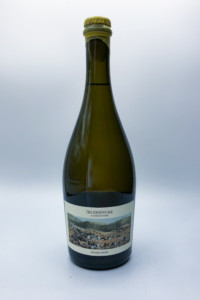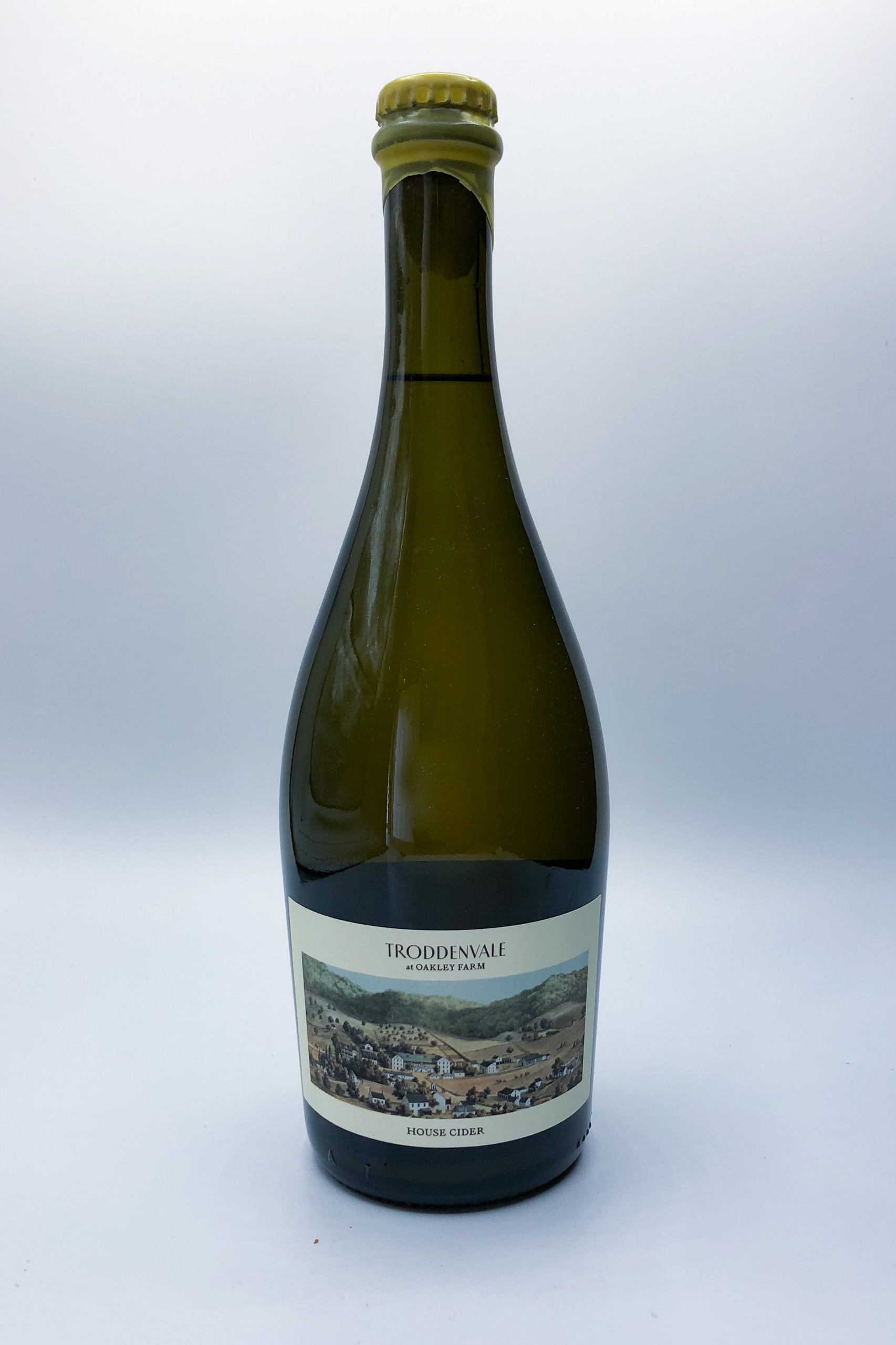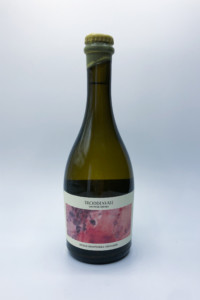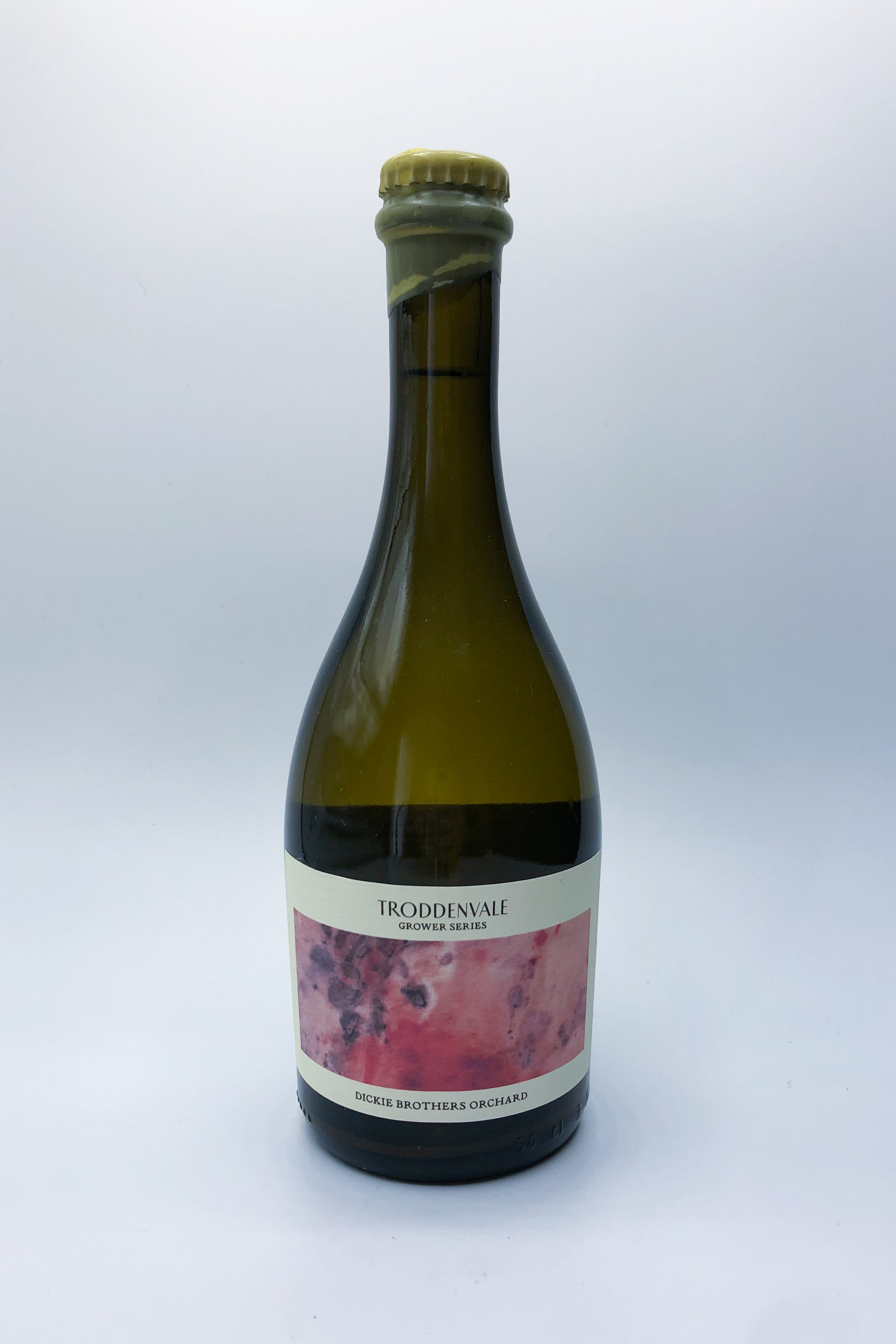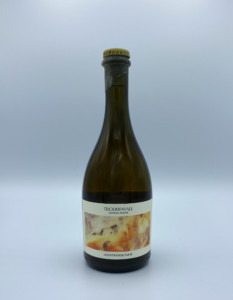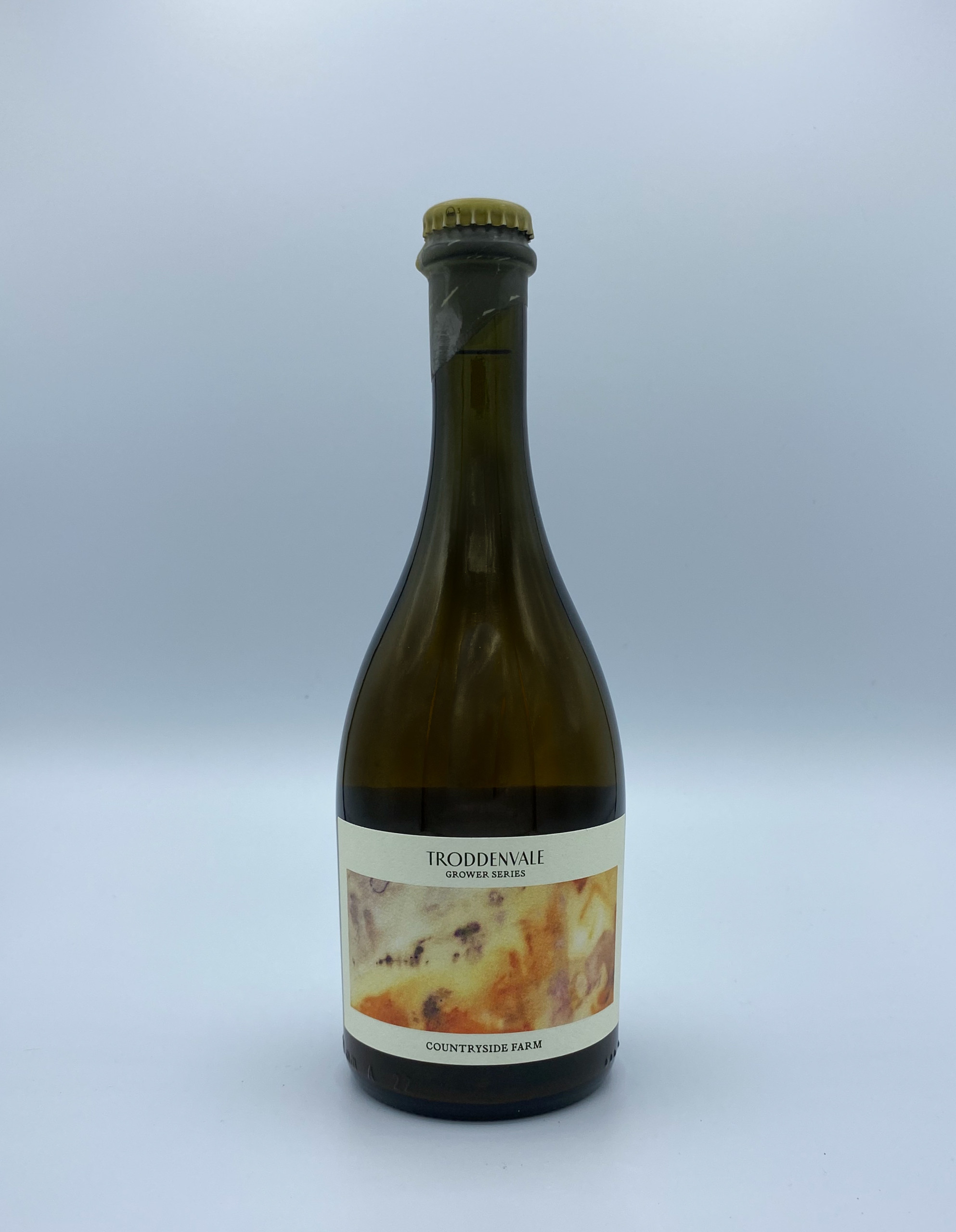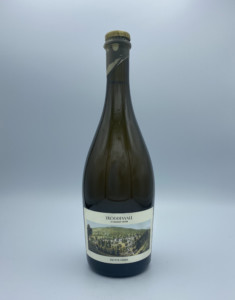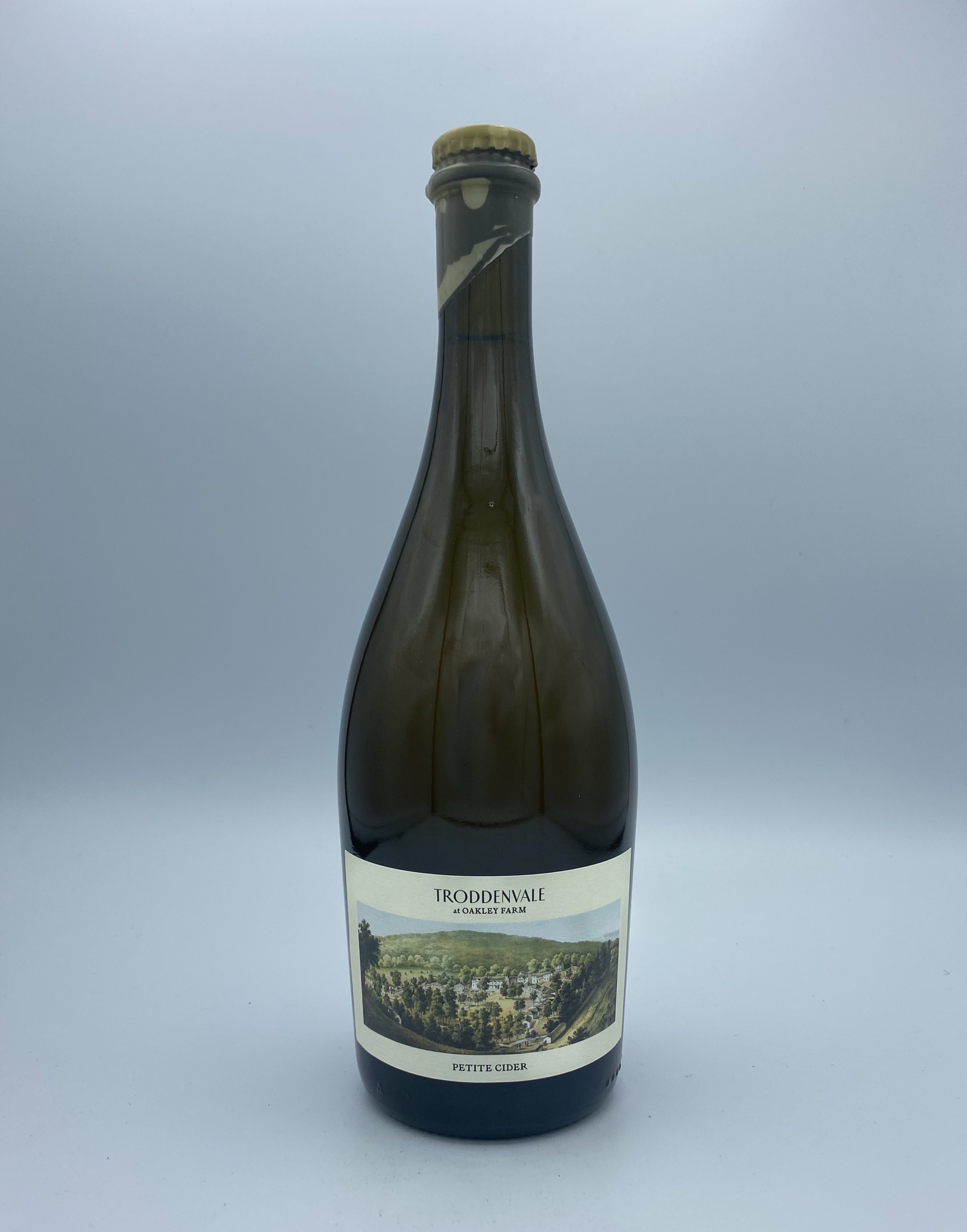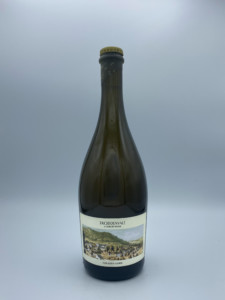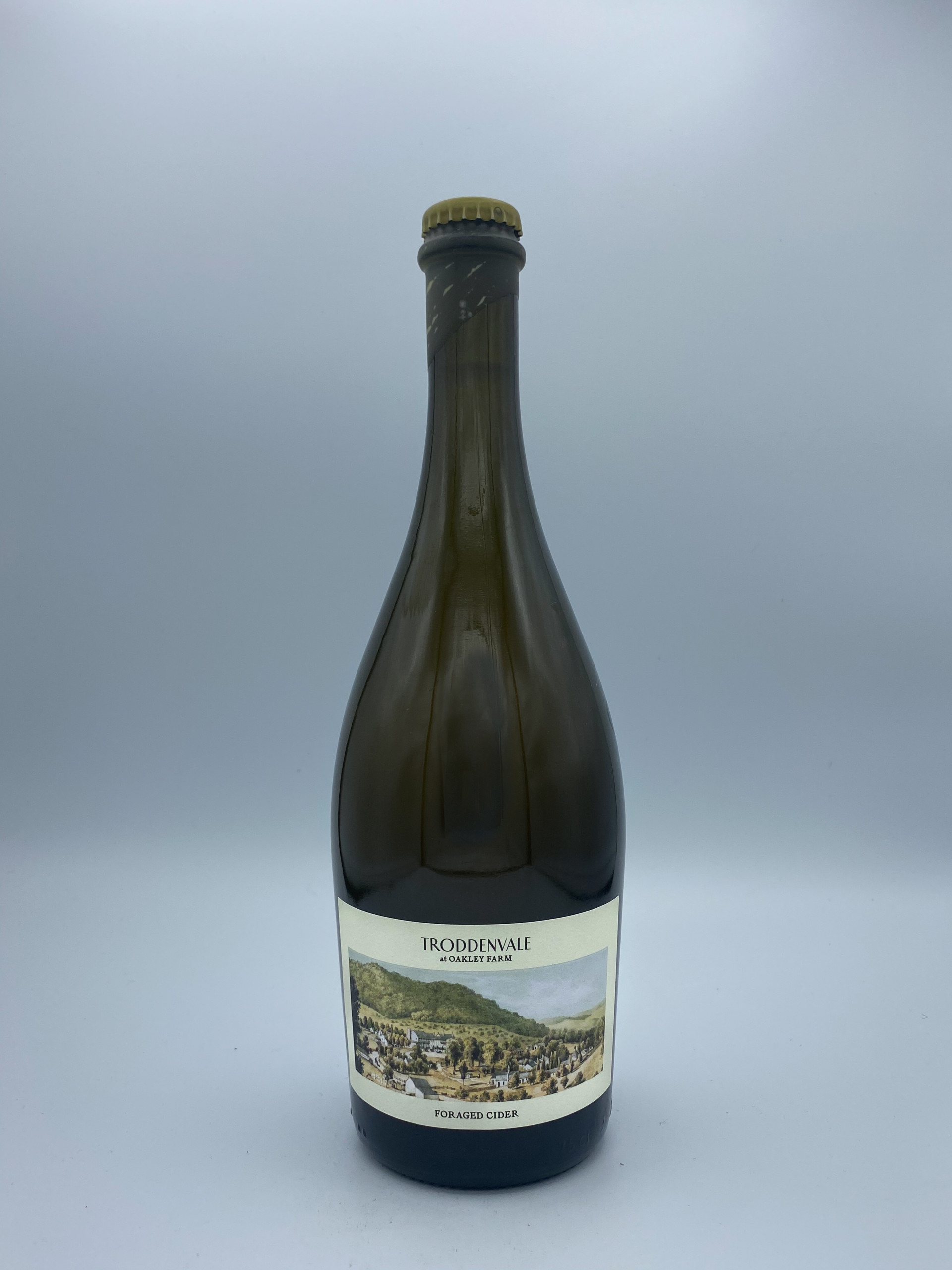Troddenvale at Oakley Farm
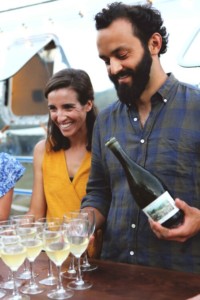
Cornelia and Will Hodges
About
Owners & winemakers: Will and Cornelia Hodges
Orchards: Two estate-owned sites (5 acres total), five sites from which they purchase fruit, and five sites from which they forage fruit.
Vineyard management: Not certified, practicing regenerative organic
Soils: Sandstone loam on top of Karst limestone
Apple varieties: Virginia Hewe’s Crabapple, Grimes Golden, Redfield, Wickson, Harrison, Dolgo Crabapple, Nehou, Golden Russet, Piel de Sapa, Coloradona, Solarina, Geneva Crabapple, Major, Dabinett, Kingston Black, Riene de Pomme, Collaos, Golden Hornet, and more.
Annual production: 15,000 bottles
Quick facts:
- Troddenvale is expanding the definition of cider with a focus on high-quality fruit and an approach informed by their background in wine.
- As part of their commitment to regenerative farming, they’ve partnered with their neighbor, Fireside Farm, on their pastured poultry operation: the chickens roam the orchard, providing natural pest control, soil aeration, and fertilizer.
- “The Allegheny Highlands of Virginia are all together a unique climate of Virginia… It is rugged and challenging yet bucolic and forgiving. Our goal with our production is to capture that in bottle. We want to show how much there still is to show in Virginia Cider.” – Will and Cornelia Hodges
Founded in 1834, Oakley is one of the oldest farms in Warm Springs Valley, Virginia. Will’s grandparents purchased the estate in 1968, and dedicated themselves to its historic preservation for fifty years. Will and Cornelia purchased it from them in 2018, and set about reviving its historical connection to apple-growing. There are records of orchards existing on the property as far back as 1840. As the Hodges explain, “Transitioning from a background in the wine industry, orchards felt like the best way to convey a sense of place in our wines.” They planted new orchards in 2018 and 2019 and have renovated the stables for cider production.
Warm Springs Valley is an elevated valley (2400 ft above sea level) crisscrossed by springs, including some of the only thermal springs in the eastern US. Compared to the surrounding areas, they have larger diurnal temperature swings, greater air flow, and less humidity, all of which help ensure healthy and ripe fruit–especially important as they’re one of the only commercial orchards in Virginia practicing non-chemical farming (only using copper and sulfur sprays). Challenges include late frost, severe spring weather, and the remote nature of the location. Overall, Will and Cornelia say they love making wine here: “We are surrounded by immense beauty. It is a calm and well preserved area, making it a lovely place to focus on orcharding.”
The goal at Troddenvale is to produce “transparency-driven ciders and wine,” as Will and Cornelia put it. “When you strip down your production’s focus to quality fruit and its location, you can find incredible diversity and complexity.” That means no added yeasts (“Inoculations are the first step to predetermination and in our opinion limit the cider’s capability to express its true self”), no adjustments, no additions, no subtractions, no reliance on SO2, and minimal racking. Instead, they focus on barrel fermentations, extended lees contact, and traditional method sparkling. As they see it, “if we can accomplish our goals in the orchard, an ecosystem full of life and resiliency, we believe the ciders will show that as well.”


